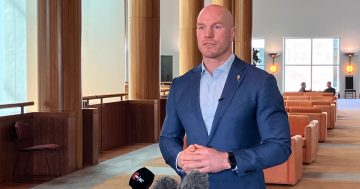Herminia Ibarra* says a lack of sponsorship is keeping women from advancing into leadership.

Photo: nd3000
Too few women are reaching the top of their organisations, and a big reason is that they are not getting the high-stakes assignments that are prerequisite for a shot at the C-suite.
Often, this is due to a lack of powerful sponsors ensuring they get these stepping-stone jobs.
Sponsorship is a relationship that has evolved from lesser to greater trust and public commitment.
The majority of CEOs come from line positions — positions with authority over major initiatives.
But, as the 2016 McKinsey Women Matter study showed, as women move up their organisations’ hierarchies, they increasingly shift from line to staff jobs, while the percentage of men in line roles remains about the same.
Not only are men more likely to be in line jobs, they get bigger jobs overall.
A 2012 study found that men’s projects had budgets twice as big as women’s and headcounts three times the size.
This disparity in access to critical roles may be compounded, or perhaps caused, by differences in women’s and men’s relationships with executives who can provide access to those jobs.
People’s tendency to gravitate to those who are like them on salient dimensions such as gender increases the likelihood that powerful men will sponsor and advocate for other men.
Sponsorship is a helping relationship in which senior, powerful people use their personal clout to talk up, advocate for and place a more junior person in a key role.
While a mentor is someone who has knowledge and will share it with you, a sponsor is a person who has power and will use it for you.
When it comes to this important distinction, the evidence is also clear: women tend to be over-mentored and under-sponsored.
Research by me and my colleagues has found that having a mentor increased the likelihood of promotion two years later for men, but had no effect on promotion for women.
One reason was that the women’s mentors were less senior than those of the men and lacked the clout to advocate for them.
Likewise, the women in the McKinsey research reported having fewer meaningful interactions with senior leaders compared with their male peers.
Yet, a senior person needs to get to know a potential protege well enough to vouch for them.
I have worked with dozens of organisations that have experimented with sponsorship schemes only to return to less controversial (and less effective) mentoring programs.
Typically, they abandon sponsorship because experience has shown them that while you can ask senior executives to provide advice and support to high-potential women, you cannot mandate they spend their personal capital advocating for people they don’t know well or are not bullish about.
While an executive’s store of knowledge will not be depleted if they share it with someone else, the political capital they spend fighting for someone to get a key assignment can no longer be used on something else.
So, it is only rational for them to use it sparingly.
But sponsorship doesn’t have to be all-or-nothing.
Organisations need to shift away from seeing sponsorship as an either/or and move to seeing it as a spectrum of behaviour that allows various types of commitment.
On the least publicly committed end of the spectrum is a classic mentoring relationship, in which the mentor provides personal advice and support privately.
On the most committed end is a classic sponsorship relationship in which the sponsor advocates for an individual, with their reputation at stake.
In between lie a range of helping roles that can, over time, evolve authentically to full sponsorship.
In order of ascending commitment, these include:
Strategiser: An executive shares their “insider knowledge” about how to advance in the organisation.
They strategise with their mentee about how to get ahead and how to fill any developmental gaps that might block her progress.
Connector: An executive makes introductions to influential people in their network.
They talk up their mentee with peers and use those interactions to learn more about how she is seen by others.
Opportunity giver: An executive gives their protege a high-visibility project or promotion.
The spectrum can also be a useful tool for women who are aiming at the upper reaches of their organisation.
For starters, it’s important to keep in mind that when you ask someone to be your sponsor, you’re asking them to use their hard-earned political influence to help you.
Keep in mind that the best sponsor is someone who is present when key staffing decisions are made and has relationships with other influential executives.
If those who know you and your work are not influential enough to advocate for you, where on the spectrum can they help?
Can they help connect you to someone who is?
The point is to strategise how to make your way up the spectrum.
Thinking in terms of incremental steps towards full-blown sponsorship also has clear implications for whether you seek a male or a female sponsor.
Research has found that when women are mentored by men, they make more money, get more promotions and have better career outcomes — not because men are better mentors but because they have more power.
Having an executive-level sponsor can be make or break for a high-potential woman’s career, particularly when it comes to getting important roles that are stepping-stones to the top.
But for these kinds of relationships to flourish, both executives and their organisations must be clear about what sponsorship is and what steps they might take to ensure women have the full-bloom sponsorship they need.
* Herminia Ibarra is the Charles Handy Professor of Organisational Behaviour at London Business School. She tweets at @HerminiaIbarra and her website is herminiaibarra.com/.
This article first appeared at hbr.or.










